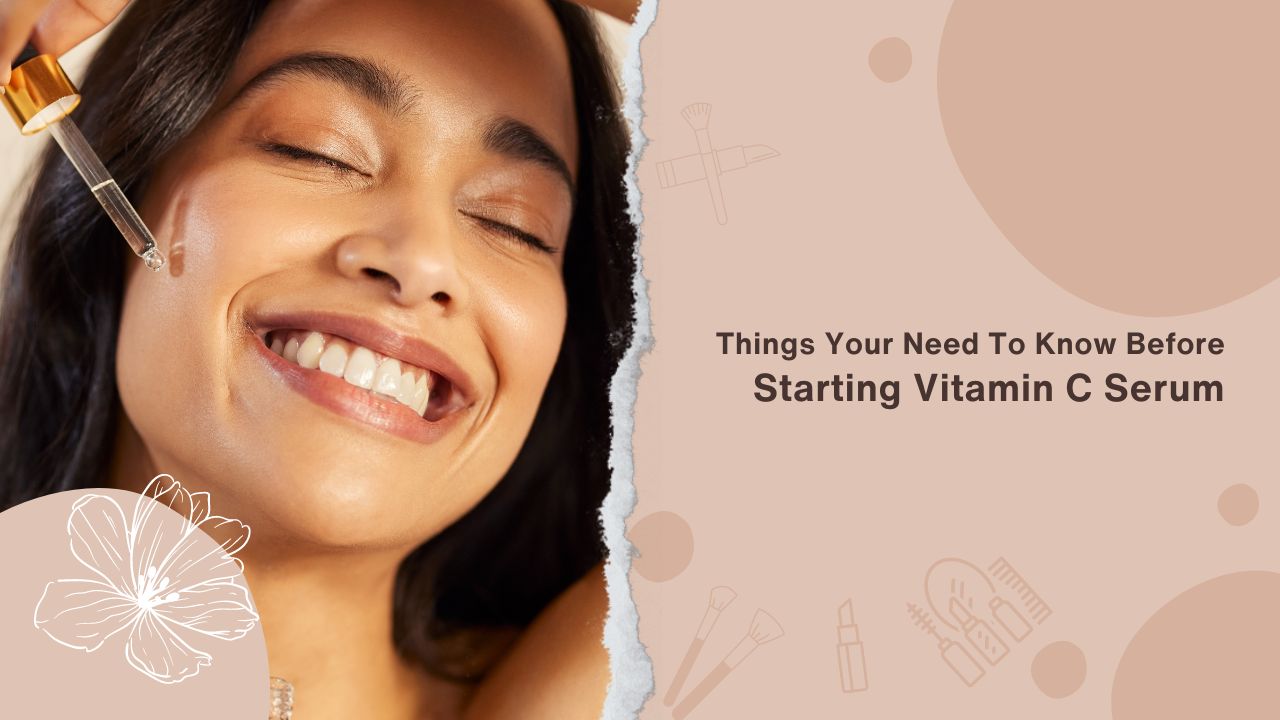Things Your Need To Know Before Starting Vitamin C Serum

Table of Contents:
Introduction
What Exactly is Vitamin C Serum?
Picking the Right Vitamin C Serum
How to Use Vitamin C Serum
Storage Tips
Conclusion
Introduction
So, you're thinking about adding a vitamin C serum to your skincare routine? Great choice! This little powerhouse can do wonders for your skin, from brightening your complexion to smoothing out those pesky fine lines. But before you dive in, there are a few things you should know to get the most out of your new beauty staple.
What Exactly is Vitamin C Serum?
Vitamin C serum is like a magic potion for your skin. It’s packed with vitamin C, an essential nutrient and antioxidant that helps protect and rejuvenate your skin. You apply it directly to your face, letting it work its magic to give you a healthier, more radiant complexion.
Why Should You Use Vitamin C Serum?
1. Brightening
Want to get rid of those dark spots or even out your skin tone? Vitamin C is a pro at brightening your skin by reducing melanin production, which helps fade hyperpigmentation.
2. Anti-Aging
This is where vitamin C really shines. It’s a powerful antioxidant, which means it helps fight off those pesky free radicals that can speed up aging. Plus, it boosts collagen production, which helps keep your skin firm and wrinkle-free.
3. Hydration
Some forms of vitamin C, like sodium ascorbyl phosphate, can improve your skin’s hydration and moisture retention, keeping your skin plump and dewy.
4. Protection
Vitamin C doesn’t just make your skin look good; it also protects it. It can help defend your skin against environmental stressors like UV rays and pollution, giving you a bit of extra armor against daily damage.
Picking the Right Vitamin C Serum
Types of Vitamin C
Not all vitamin C serums are created equal. Here are a few common types you’ll come across:
- L-Ascorbic Acid: This is the most potent and effective form, but it’s also the most likely to cause irritation.
- Sodium Ascorbyl Phosphate: A more stable and less irritating option, great for sensitive skin.
- Magnesium Ascorbyl Phosphate: Known for its hydrating properties, also gentle on sensitive skin.
- Ascorbyl Glucoside: Less potent but still good for brightening and antioxidant protection.
Concentration Matters
Serums come in different strengths, usually ranging from 5% to 20%. If you’re new to vitamin C, start with a lower concentration (around 10%) and see how your skin reacts before going stronger.
Key Ingredients to Look For
A good vitamin C serum often includes other beneficial ingredients:
- Vitamin E: Works with vitamin C to boost its effectiveness and stability.
- Ferulic Acid: Enhances vitamin C’s protection against sun damage.
- Hyaluronic Acid: Helps keep your skin hydrated and plump.
How to Use Vitamin C Serum
Step-by-Step Application
1. Cleanse: Always start with a clean face to ensure the serum can penetrate properly.
2. Tone: Use a toner to prep your skin and balance its pH.
3. Apply Serum: A few drops go a long way. Apply it evenly over your face and neck, but avoid the eye area unless it’s specifically formulated for that.
4. Moisturize: Lock in the serum with your favorite moisturizer.
5. Sunscreen: Vitamin C can make your skin more sensitive to the sun, so always finish with a good sunscreen during the day.
How Often?
Most people use vitamin C serum once a day, preferably in the morning. If you have sensitive skin, you might want to start with every other day and gradually increase as your skin adjusts.
Watch Out for These Side Effects
While vitamin C is generally safe, some folks might experience:
- Irritation: Redness, itching, or a burning sensation, especially with high concentrations.
- Breakouts: Sometimes your skin might purge a bit when you first start.
- Sensitivity: Increased sun sensitivity, so don’t skip the sunscreen!
If your skin freaks out, stop using the serum and check with a dermatologist.
Storage Tips
Vitamin C is a bit finicky—it can degrade when exposed to light, air, or heat. Here’s how to keep it fresh:
- Cool, Dark Place: Store your serum away from sunlight and heat.
- Dark Bottles: Look for serums in opaque or amber bottles to protect from light.
- Seal Tight: Make sure the bottle is tightly closed after each use to minimize air exposure.
Wrapping It Up
Vitamin C serum can be a game-changer for your skin, offering benefits like brightening, anti-aging, hydration, and protection. By choosing the right type and concentration, applying it correctly, and storing it properly, you can maximize its benefits. Start slow, monitor how your skin reacts, and always use sunscreen. Happy glowing!